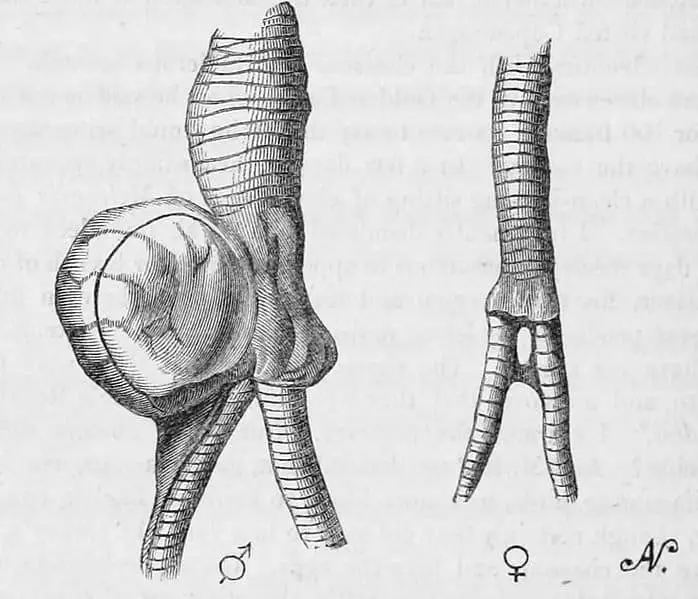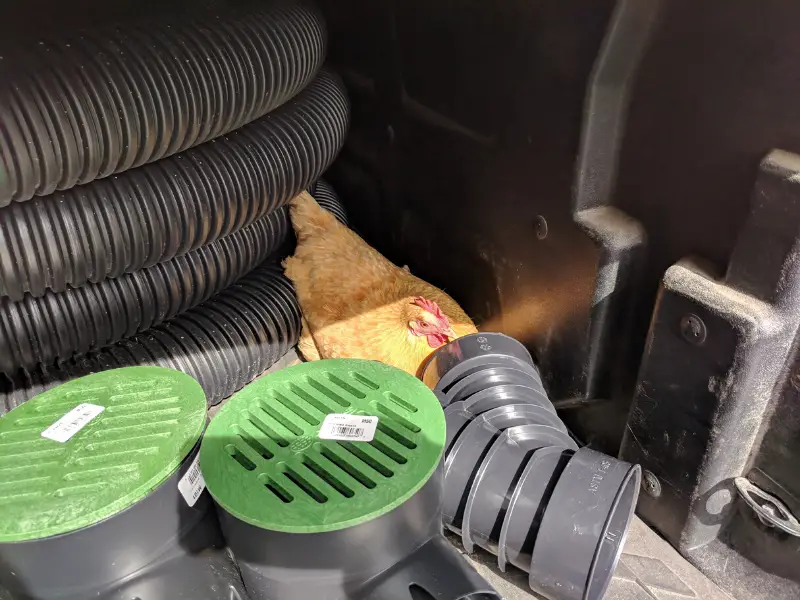We have all all heard the recognizable quack of a duck whether it’s in the wild or on the homestead. But have you ever wondered if that quack is coming from the drakes (males) or hens (females)? Or you thought that the voices of the drakes and hens are indistinguishable.
As it turns out the traditional duck quack is only made by the female duck. Male ducks don’t produce that loud quack but rather they make a softer rasping or wheezing sound. The drakes sound is more of a whisper than the hen.
This is due to an actual physical difference between drakes and hens. Read on for more details on this difference and other information regarding duck quacks.
A Duck’s Voice Box or Syrinx
In humans we vocalize with help from our Larynx sometimes referred to as a voice-box. Instead of a larynx like we have, birds including ducks have a syrinx located were the windpipe splits to go into each lung.
Because the syrinx is located at this split, it allows some songbirds to produce two notes at the same time which results in the the amazing songs they can produce. The female duck has this same symmetrical syrinx as songbirds do, but the male duck has large hollow chamber on the left side of the syrinx called the syringeal bulla. Here’s a link to a research paper by Reda Mohamed that dives pretty deep in to those anatomical differences.

Although I couldn’t find a definitive answer as to why the female duck can quack but a male duck cannot, it seems that the large chamber on the male’s syrinx doesn’t allow for the drake to make the same loud quack as the hen. The research paper suggested that the tracheal membranes in the male are thicker due to the formation of the syringeal bulla and therefore cause the difference in vocalization.
Are All Duck’s Equally Loud?
Nearly all breeds of domestic ducks originated from the wild Mallard duck. The exception to this is the Muscovy duck which isn’t really a true duck but a very close relative.
Wild ducks in general are much quieter than domestic ducks which is most likely due to their natural instinct to not draw attention from predators. It’s been my observation that they are noisiest in during the spring mating season and again as they start flocking together for the south migration in the fall. Here’s a link to Cornell Lab of Ornithology for actual wild duck sounds.
The breeds of domestic ducks that come from Mallards can all be fairly noisy especially a large group of females. The Call duck and Pekin duck are known as the loudest of the bunch. Some of the Runner duck breeds can be somewhat more quiet but this seems to more of a case-by-case basis than a generalization of the breed.

Muscovy ducks are considered the quietest of the domestic ducks, and don’t really have a loud quack like the other domestic breeds do. Sometimes a group will get together and have a loud “conversation” but this is an exception rather than the rule. Most often Muscovies make a very soothing sound that is relaxing to the homesteader.
Cayuga ducks are also said to be on the quieter side, but according to the duck breed comparison chart on Metzer Farms website the Cayugas are not very calm and can be very skittish or nervous.
Here’s a video from Hannah Miller that highlights a group of Muscovies chatting away:
Does a Duck Quack Echo?
Since we’re on the subject of duck quacks, let’s explore a myth that probably originated long before the Internet, but became widespread on a list of “Random Facts” distributed over the web.
It’s been thought for many years that duck’s quack doesn’t have an echo. This myth has recently been proven to be just that – a myth. The TV show Mythbusters aired an episode disproving this myth but there has also been research done by an Acoustics Professor at The University of Salford in Manchester England.
The experiment used a Pekin duck named Daisy for the experiment which used different sound chambers to record Daisy’s quacks to determine whether or not a duck’s quack has an echo.
The study found that a duck’s quack does indeed have an echo although it is very faint and hard to distinguish under most conditions. The fact that the quack echo is so hard to hear must be the origin of the myth.
Additional Resource Links
Wikipedia – Syrinx (bird anatomy)
Metzer Farms – Duck, Chicken, Goose and Gamebird Hatchery



